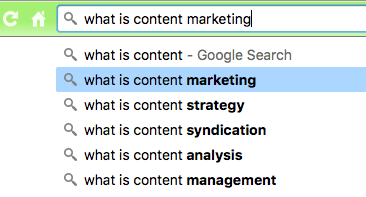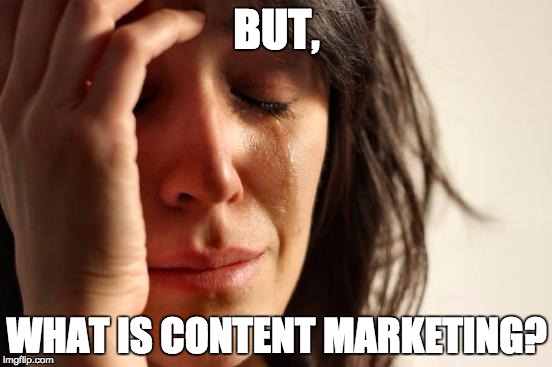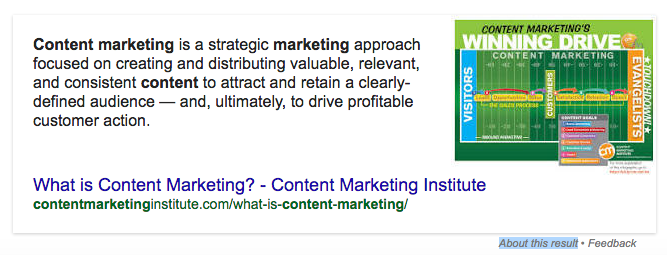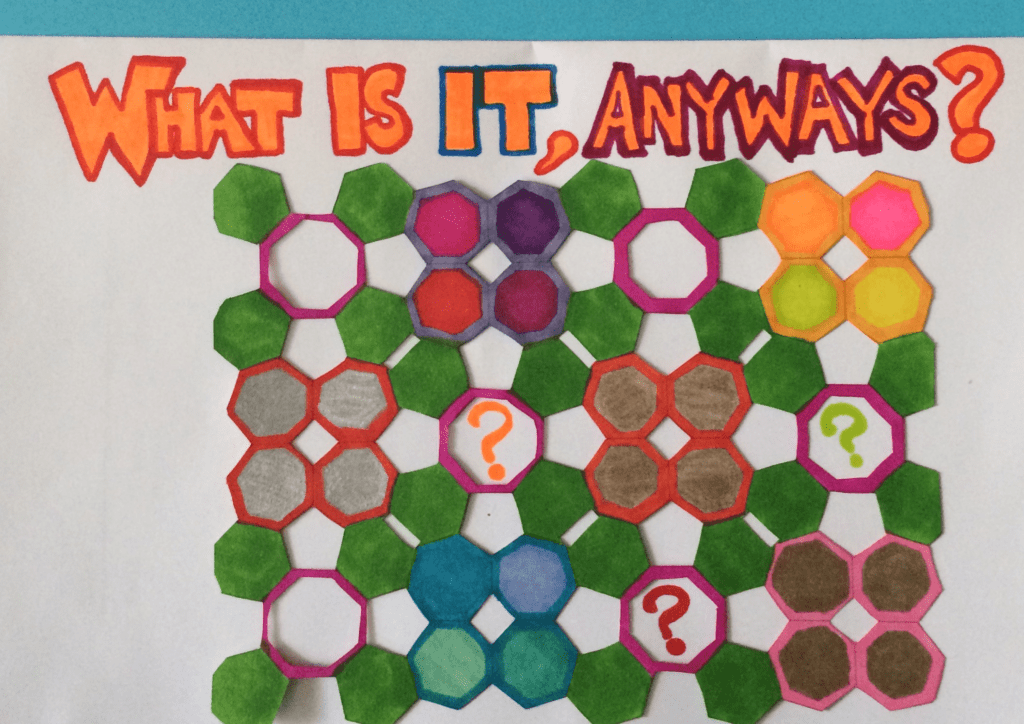Several months ago, we empaneled a group of communications professionals to tell us where to focus our content marketing time and treasure this year. Then we dove a little deeper into how small/medium businesses and nonprofits could apply all that internet marketing knowledge to their own endeavors.
It’s been nagging at me for years now, before and after that post — that we didn’t adequately define:
Just Exactly What Is Content Marketing, for Pete’s Sake?
And, who in the sam hell is Pete?
And, what is a sam hell? Is it a unit of measurement? Is it a bastardization of some pre-modern Gaelic word related to Samhain? I’m serious, I’ve always wondered.
If you’ll indulge a quick personal story…
I think it’s illustrative.
For the better part of a decade, I’ve made my living “doing” social media and, consequently, inbound marketing, then, eventually, content marketing. Or marketing communications (“marcomm”) or blogging or online marketing, or whatever the Twitterati intelligentsia proclaimed to be the jargon-du-jour.
The lesson I learned, after much hand-wringing and semantic angst, is to mirror my clients’ vocabulary and gradually educate, as and if necessary.
Quite frankly, my invoices refer to services rendered in the self-same terms in which they were requested. If they hire me to “write some stuff,” I bill ’em for “writing said stuff.” I ain’t too proud.
Fluttery and multiple pulses
I spent a few glorious years in-house, client-side, doing their social media. Then, I followed the hordes to Austin and threw myself into the grueling ego-wrenching process that is job-hunting in this market.
Somewhere in the time I spent tucked happily away in that steady job (as opposed to the multiple gigs of a freelance consultant), I found that I had lost the “pulse” of this business.
Insofar as “this business” has a pulse or is driven by only one beating heart. And, insofar as it’s a business — it’s more a discipline, an area of practice, not quite a line function but closer to customer-facing than back-office staff roles.
After multiple rejections, I was slobbering tears over my coffee with a long-time colleague who asked after my job search. I said, “Dude, I don’t even know what to tell people I DO. Do I do inbound marketing or content marketing or social media marketing or online marketing or OMG, why won’t anybody hire me?” Then, I dissolved into incoherent sobbing.
He patted my shoulder, passed me a hankie, and ‘splained it to me, more or less as I’m about to explain it to you, dear reader. Because as classroom teachers often say, if you have a question, you’re probably not the only one in the class who has it.
Indeed, Google Knows Content Marketing.
I am definitely not the only chick in class wishing somebody would be brave and ask the obvious, as you can see when Google autocompletes my question for me. 
If I can save just one person…
It will have been worth it. It will all have been worth it. ~littlest violin solo~

And the answer is…
According to Google (at this time from this browser), the rights to define this squirrelly term go to none other than The Content Marketing Institute. D’uh. (We featured CMI Founder Joe Pulizzi’s thoughts in an earlier expert round-up on the biggest content marketing mistakes.)
The Google search algorithm is so taken with CMI — as they should be — for loads of reasons, including years of both world-class SEO and positive social signals — that their search results page shows CMI’s definition as a featured snippet.

In this search, I also came across Chris Bolman at Percolate’s similar rumination, The Impossible Definition of Content Marketing. At which point, it’s tempting to say, “Hey readers, click on this. Suzanne out. Bye.” But then where’d my word count go? And, as I often remind myself, it’s okay not to have an original thought.
Let’s look at content marketing in history.
A man after my own mind, Bolman takes us back to the origins of content marketing:
At least as far back as the 1930’s, when advertisers underwrote early radio shows like the Colgate Comedy Hour, brands have complemented marketing messages with resources that extended the brand’s value beyond its core product or service.
I would venture he’s not going back far enough. To make a somewhat febrile point, one could argue that the cave paintings at Lascaux were early efforts at content marketing, at the very least, wayfinding. After all, they said, “Hey fellow wayfarer, we got herds of prey animals rolling through here on the regular. Stay awhile.”
Heck, it could have been the first known tourism board. I mean, who’s to say, amiright? (Gonna need that sarcasm font…)
Let’s look at content marketing in context — a bit of a linguistic riff.
Content marketing — technically — is anything with content, right?
Websites and other “digital properties”, blog posts, guest posts, white papers, case studies, interviews, videos, podcasts, email newsletters, social status updates, phone book listings, billboards, product packaging, door hangers, business cards, classified ads.
I’m only being slightly tongue-in-cheek with those last examples and French cave paintings.
“Content marketing” as currency in our realm was coined too recently to include its own analog grandcestors, like Sunday paper inserts and fliers stapled to telephone poles. “OMG, Becky, look at those landlines! They’re just so big and, like, old.”
In that way, “content marketing” presupposes a paperless office and a fully digital, mostly mobile and connected existence. Which is happening, but not universally and not to the exclusion of other media. Some people still take the paper. I know, right?!
Before “content marketing,” we had “inbound marketing” because it differentiated from “outbound marketing.”
“Outbound” as in “push marketing.” As in the junk bundle in your mailbox on Tuesdays with local sales fliers. And the scourge of dinner-time telemarketers. All that stuff you didn’t ask for, for which you did not give permission. Stuff that was broadcast to you. Without your ability to opt-out. Push vs pull.
An old article from HubSpot delved deeper into inbound vs outbound.
Fun fact: Hubspot co-founders, Brian Halligan and Dharmesh Shah, wrote the book on inbound marketing. Now, their firm specializes in content marketing. So, go figure.
As content marketing is the younger term, to my mind, we can reasonably use it to grandfather in all content, even “old school” content and any marketing collateral that needs to be made physical not just digital or virtual.
Let’s look at content marketing and you.
(Hehehe. That sounds like a brochure in your doctor’s office. “Let’s talk about inflammation and you.”)
As Bolman notes, content marketing is “often synonymous with brand publishing.”
Now, hold onto your seats, kids. This is where we rock your world.
Way back in 1997, business management consultant and big thinker Tom Peters coined the phrase “personal brand” in a print article for Fast Company magazine. Thanks for that, Tom.
(To be fair, Peters didn’t come up with the idea of pimping yourself out for work — or to use the more politically correct euphemism, “tooting your own horn” — he merely codified it and coopted it so that we can be more proactive about it. His premise is reminiscent of the same self-examination and authentic self-presentation that Richard Bolles has been promoting since 1975 with his phenomenal work, What Color Is Your Parachute? If anything, Peters updated it for the Me Generation in a boomtime economy with the lowest unemployment rate in a generation. But, I digress.)
So, back to my point.
If content marketing = brand publishing and you = brand, then …
Literally. I. Just. Can’t. Even.
For further instruction in content marketing, consider CMI’s seminal-according-to-Google tutorial, Moz’s beginner’s guide, or Hubspot’s content marketing strategy guide, geared toward larger businesses with bigger budgets.
Suzanne Hoenig
Latest posts by Suzanne Hoenig (see all)
- The Anti-Social-Media-Marketing Manifesto 2016 - October 19, 2016
- Which 3 Social Media Platforms Will Be Around in 3 Years? - October 13, 2016
- White Papers: Still a Way to Compel and Convert Leads - September 14, 2016





